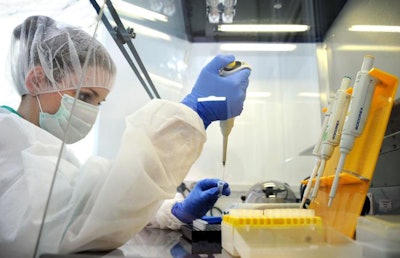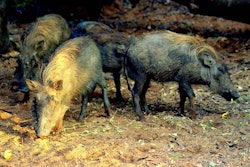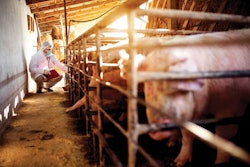
Potential African swine fever vaccine remains experimental, but passes several key trials
Chinese researchers have developed what they and other experts believe may be a viable vaccine for African swine fever (ASF), assuming the vaccine continues to perform as expected in future trials.
By deleting seven key genes from a particular strain of the ASF virus, a team of Chinese researchers has identified a vaccine candidate they and other scientists say appears to hold promise for addressing ASF. The potential vaccine has passed an initial series of tests demonstrating its safety and efficacy in preventing ASF, according to a March 2020 report in Science China Life Sciences.
The vaccine must still prove itself in additional, larger trials before commercial production can begin. But these initial results suggest the Chinese scientists might be on the right track, according to Linda Dixon, who oversees the ASF research group at The Pirbright Institute.
“The research is sound and the impact is potentially huge if the promise from the early results is fulfilled in the larger field trials,” Dixon said in an email.
The team, comprised of researchers from the Harbin Veterinary Research Institute at the Chinese Academy of Agricultural Sciences, and the National High Containment Laboratory for Animal Diseases Control and Prevention in China, compared six vaccine candidates and identified one that appears particularly promising. The vaccine requires the deletion of seven genes identified in previous work as key to the development of a potential vaccine.
An initial series of five trials in domestic pigs showed that the vaccine appears to provide long-term protection from ASF, and initially triggers no or minimal symptoms in the immunized pigs. The paper also suggests that pigs who receive the vaccine do not become contagious and spread the virus to other swine.
Previous attempts to develop a vaccine for ASF have caused immunized animals to develop a low-grade, chronic form of the disease that spread to pigs that did not receive the vaccine.
However, Dixon cautioned that, so far, all the tests carried out by the Harbin team “have been small-scale experimental studies.” Long-term, scientists must conduct much larger field trials to determine that the vaccine is safe for commercial distribution.
The Harbin paper indicates the research team has plans to grow the new vaccine strain in swine bone marrow cells, and to conduct additional small-scale trials before proceeding to field trials.
















